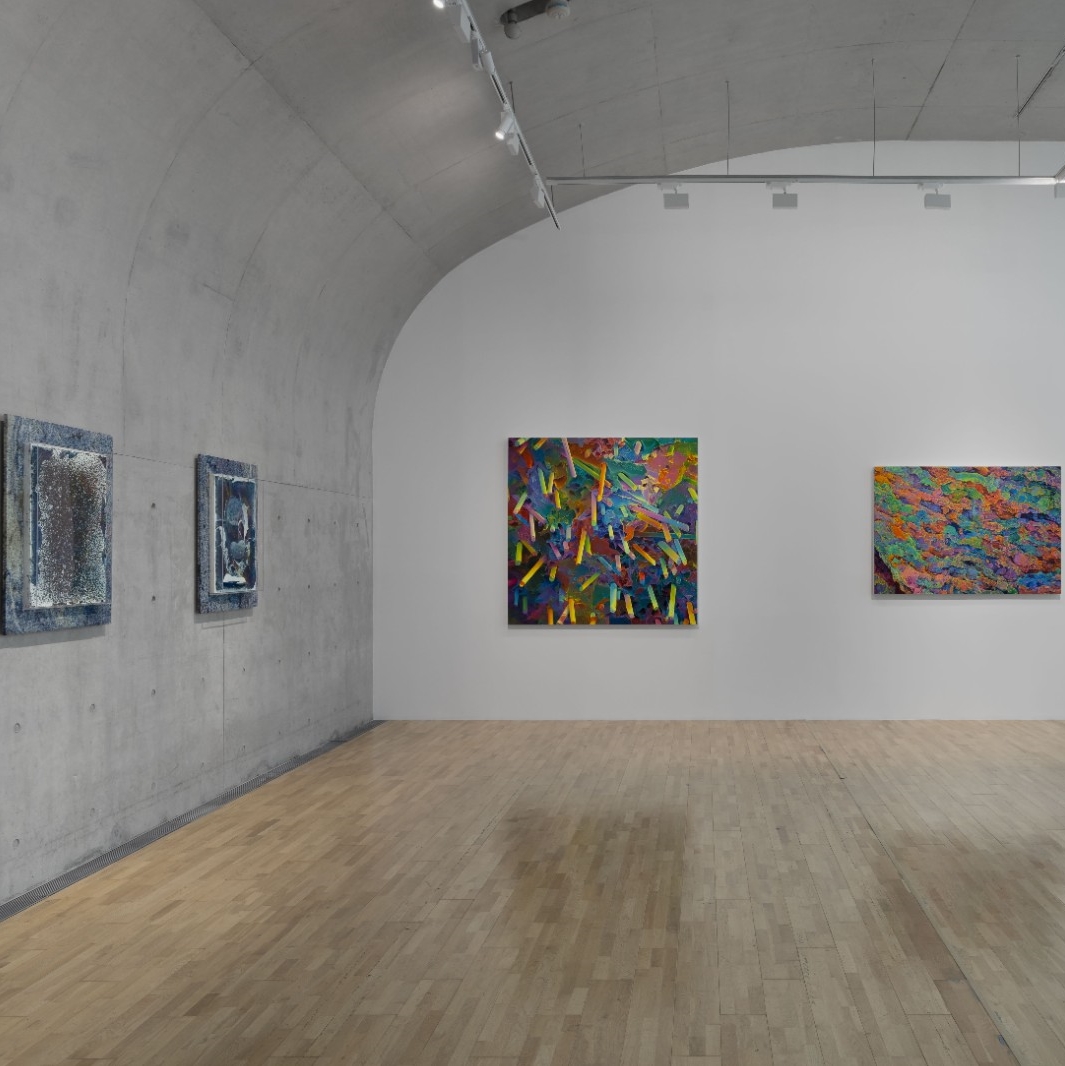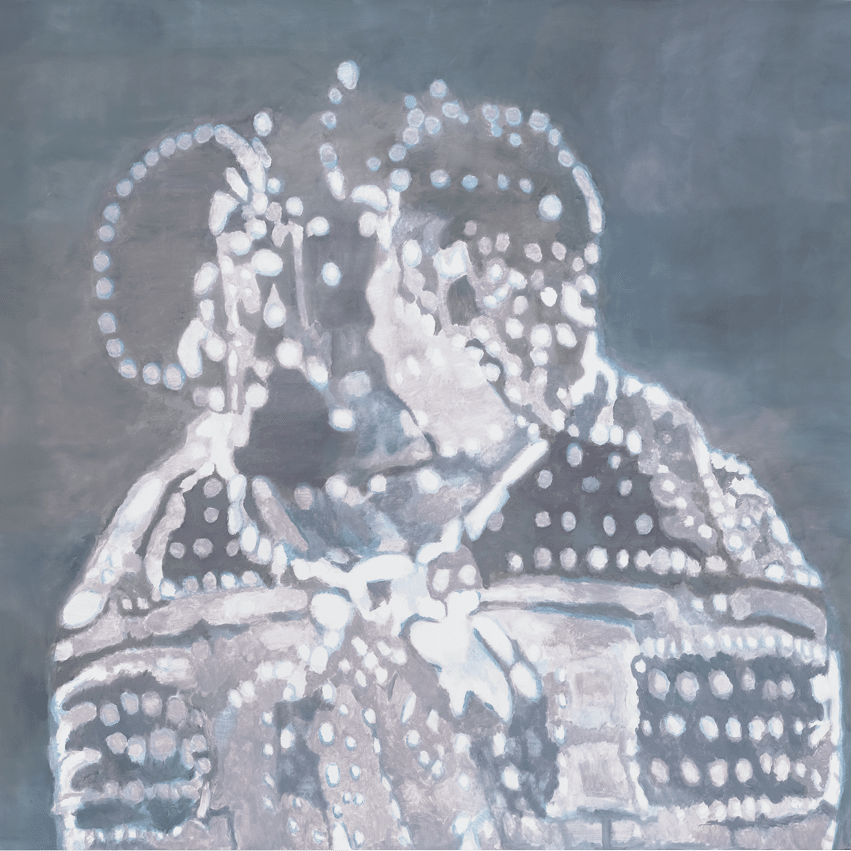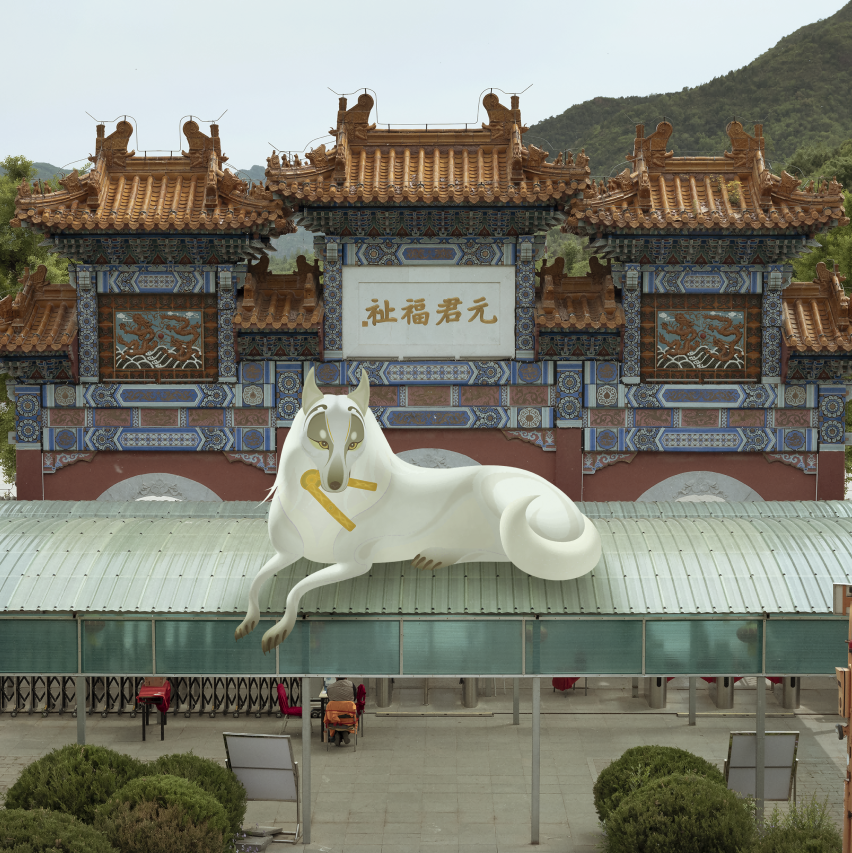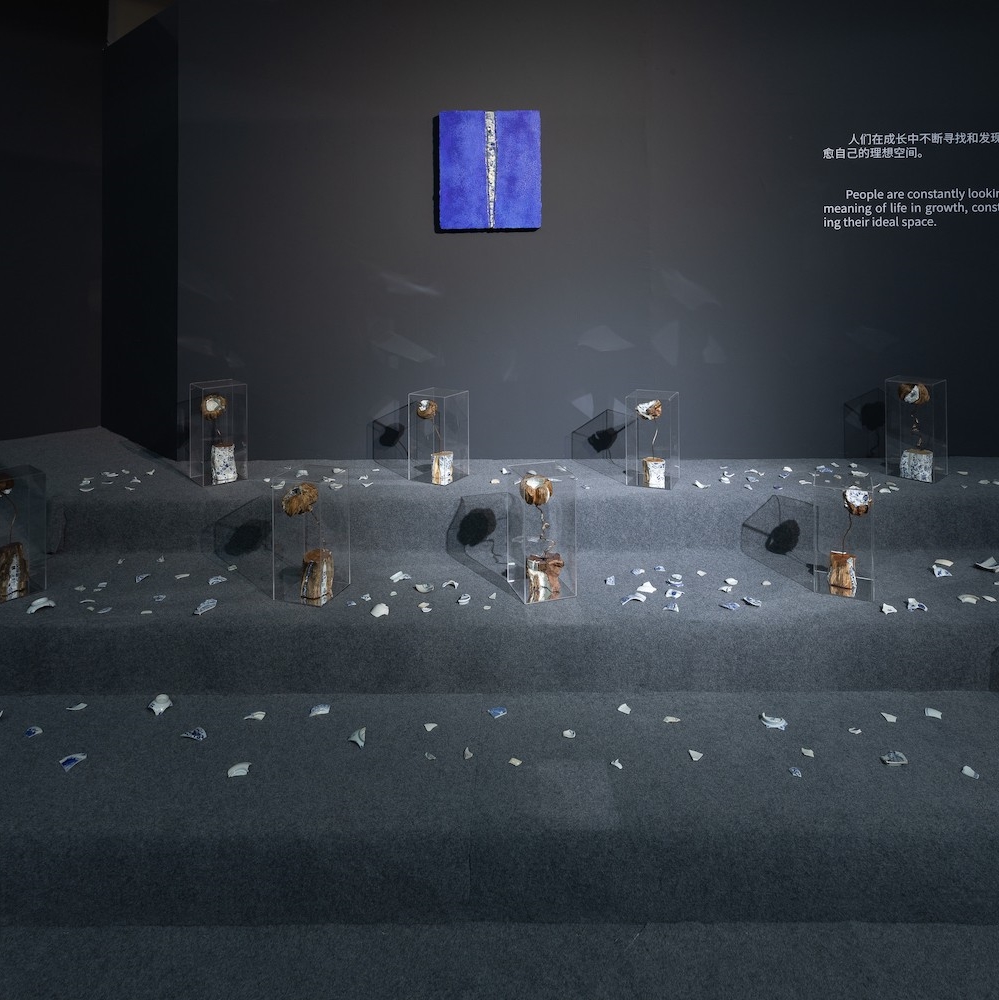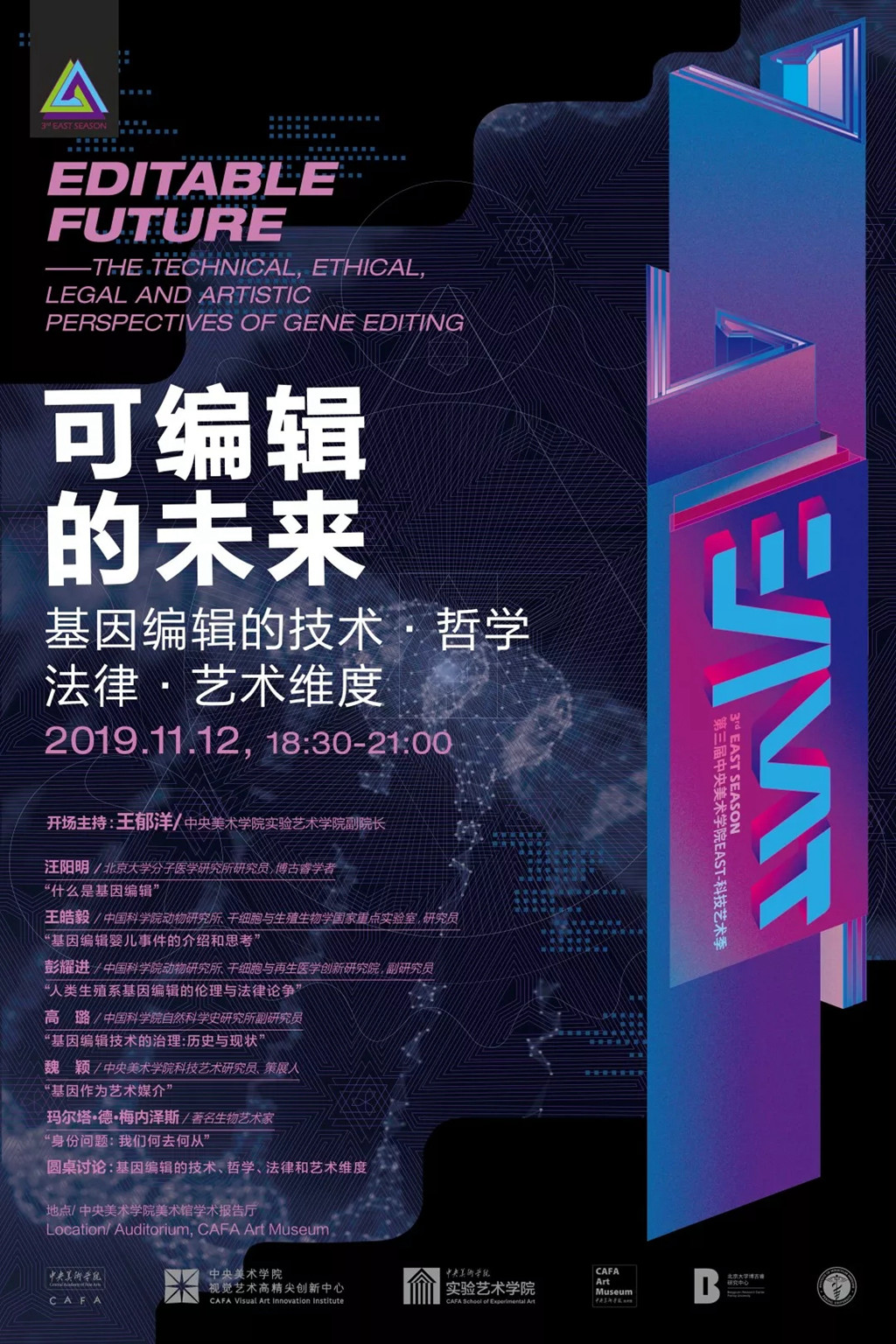
Time: 6-9pm, 12th of November, 2019Venue: Auditorium, CAFA Art Museum
▼
Topics:
A Brief Introduction of Genome Editing Technology
Speaker: Yangming WANG
Principal Investigator of the Institute of Molecular Medicine and Berggruen fellow at Peking University
Wang studies the function of noncoding
RNAs-the dark matter of our genome-and stem cells that hold potential to
cure a variety of diseases such as diabetes and neurodegenerative
diseases. He has systematically dissected the function of microRNAs in
embryonic stem cells and invented a microRNA-inducible CRISPR platform
for controllable genome editing in mammalian cells. He is broadly
interested in the impact of cutting-edge biotechnology development such
as genome editing, DNA sequencing and genetic diagnosis, and stem cell
therapy on human society.▼Topics:
Gene Edited Babies: What went wrong and what could go wrong
Speaker: Haoyi WANG
Principle Investigator of the State Key Laboratory of Stem Cell and
Reproductive Biology, Institute of Zoology, Chinese Academy of Sciences
(CAS)
Wang has developed of a variety of genome
engineering technologies, including transposon-based method for
determining the binding specificity of transcription factors, TALEN- and
CRISPR-mediated genome editing in human pluripotent stem cells and
mice. His current research interests are 1. Developing novel tools for
genome engineering; 2. Establishment of novel therapeutic methods using
gene editing; 3. Study the mechanism of X chromosome inactivation in
human using stem cell and CRISPR technologies.▼Topics:
Ethical and Legal Controversies concerning Human Germline Genome Editing
Speaker: Yaojin PENG
Associate professor at the Institute of Zoology (IOZ), Innovation Academy for Stem Cell and Regeneration (IASCR), CAS
Peng holds a Bachelor’s degree in life
science and a Ph.D in Law (Maastricht University, the Netherlands). He
was a visiting scholar at Singapore Management University (SMU). His
research focuses on biotechnology law and ethics, intellectual property
rights and standardization, S&T and innovation policies, etc.▼Topics:
The Governance of Biotechnology: the Wisdom of the History and the Challenge of the Emerging Gene Editting
Speaker: Lu GAO
Associate professor in Institute for the History of Natural Sciences, CAS
Gao received her Phd in STS Center, Tsinghua
University. She was visiting scholars of ISSTI of Edinburgh University,
and East Asia Center at Stanford University. Her research focuses on
the governance of emerging technologies, especially life sciences. She
has been published more than 20 papers about biotech governance, the
history of bioethics.▼Topics:
Gene as Artistic Media
Speaker: Jo WEI
Researcher of Art, Science and Technology (AST) in the Central Academy of Fine Arts (CAFA), Curator
Jo Wei is a curator, researcher and the
founder of the Pan Bio-Art Studio (PBS). She is currently a researcher
of Art, Science and Technology (AST) in the Central Academy of Fine Arts
(CAFA), Beijing. Her recent research interests include AST in a
posthuman context, bio art/bio design, ecological art and others. Among
the list of her many curations are Ars Electronica in Shenzhen (2019,
Shenzhen), Quasi-Nature: Bio Art, Borderline, Laboratory (2019,
Beijing), and When Forms do not Become Attitude (2016, Beijing). Wei was
the co-curator of 1st and 2nd edition of Beijing Media Art Biennale and
International Adviser for the European Commission’s 2019 STARTS Prize.▼Topics:
Identity issues: Where do we come from? What are we? Where are we going
Speaker: Marta de Menezes
Artist
Marta de Menezes’ work explores the
possibilities modern biology offers to artists. She has been developing,
for the last 20 years, the use of biology and biotechnology as new art
media, conducting her practice in research laboratories that also are
her art studios.Besides the works by de Menezes like first seminal
bioart project entitled “Nature?” (1998) that questions the definition
of nature through a non-genetic manipulation of live butterfly wing
patterns, and her most recent projects that use the technology of
CRISPR-cas9 to reengage with questions of identity as a species, as
animals, as composites, and multiples – and how we understand these
concepts in relation to our future.Roundtable: The Technical, Ethical, Legal and Aristic Perspectives of Gene Editing
Curator of the program: Jo Wei
Host: Central Academy of Fine Arts
Organizers:
CAFA Visual Art Innovation Institute
Institute of Molecular Medicine, Peking University
School of Experimental Art, CAFA
CAFA Art Museum
Berggruen Research Center, Peking University
Courtesy of the Organizer.



